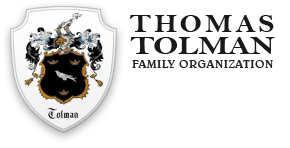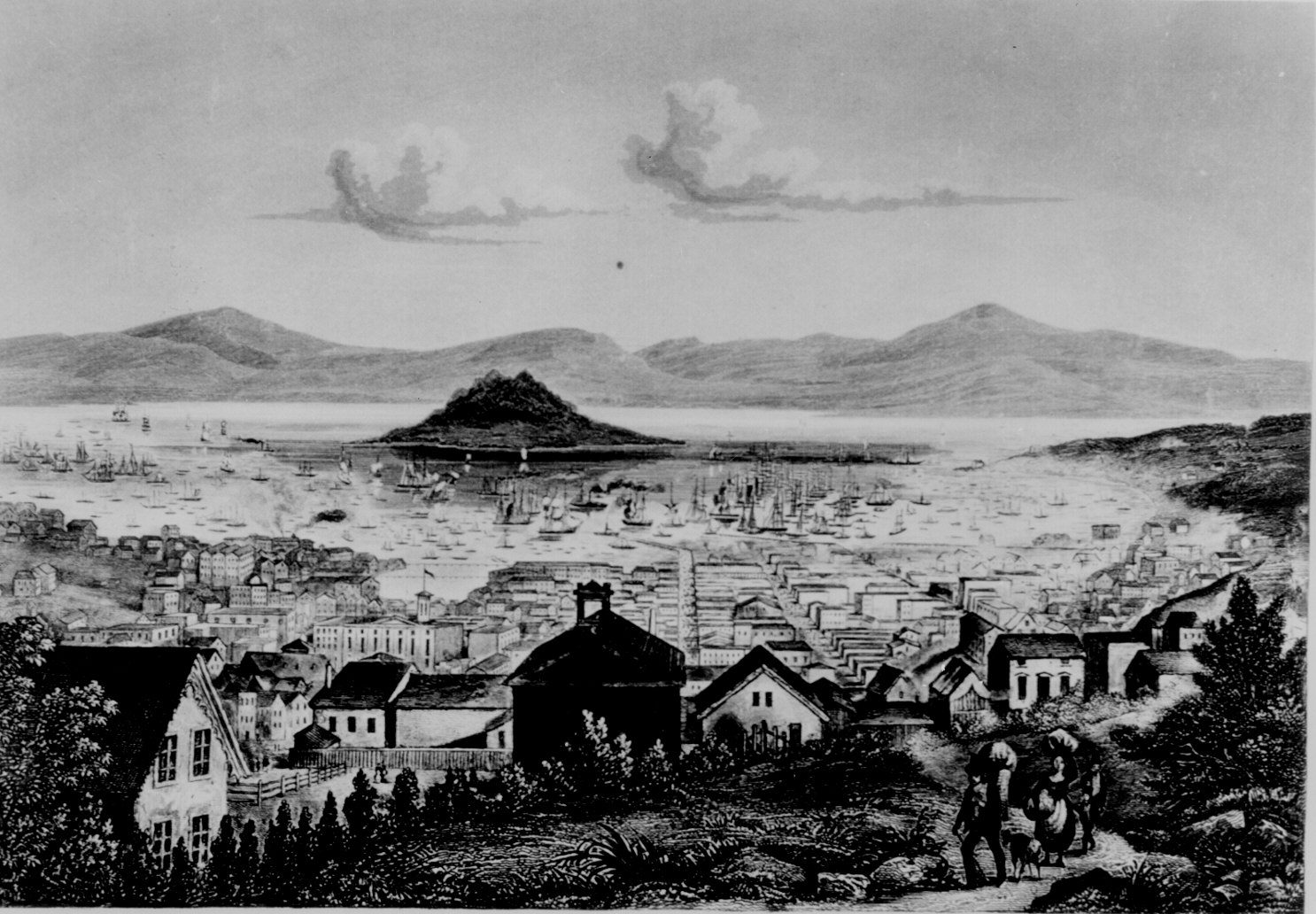(Picture: Salt Lake City in 1850)
Given the periodic difficulties that the Mormon settlers were having with the Indians and the large numbers of gentile “forty-niners” who were traveling through the territory, Brigham Young called a company of thirty-one individuals to guard the Southwestern frontier of Utah. This group served under Captain Phineas White. It would appear, from the records Judson left, that most of the encounters of this group of guards were with unfriendly Indians. The following text is extracted from Lavaughn Tolman Fowler’s history of Judson Tolman, by his grandaughter. It was apparently transcribed by Lavaughn from her grandfather’s journal: (See also Appendix III, LDS Encyclopedia.)
“In 1850 I was one of a company of thirty-one called by Brigham Young to serve as guard on the south western frontiers of Utah under Captain Phineas White. I served three and one half years in that capacity. I was in a battle with the Indians where sixteen Indians and one White man were killed. In 1852 the Indians took the last yoke of oxen and cow I had. In 1854 I moved to Bountiful. I helped to herd Uncle Sam’s Army in Echo Canyon War.” (Fowler, Lavaughn Tolman, Judson Tolman, by his Granddaughter. Copy made available through the International Society of the Daughters of the Utah Pioneers.)
Charles R. Mabey, in his wonderful history and biography, recorded the following experience, which Judson had related to him personally:
“It was during the Walker War (English rendition of the Indian “Wakara”). I was out scouting on horseback, when I was suddenly confronted by a young brave fully armed. He grabbed my mount by the bits and ordered me to dismount and give the animal to him. Though taken unawares, I jumped off the horse, attacked him and threw him down, taking away his weapons. I then told him to get going and he went.” (Mabey, Charles R., Our Father’s House, Salt Lake City; Beverly Craftman, 1947, page 127.)
Imagine the formidable task—and mistake—this young Indian brave had made, attempting to take by force the mount from Judson Tolman in his prime. For years, Judson had spent long hours in constant heavy labor. Working in the timbers had turned his muscles to steel. If it were not embarrassing for an Indian buck to publicly admit that he had been vanquished, one could imagine the talk that might have occurred around the camp fire that night! “Made big mistake today!”
Regarding Judson Tolman’s service as a guard, it is appropriate to note that Glade Tolman, who currently lives in Upland, California, has in his possession the sword of Judson Tolman, which would have been part of his accoutrements during this period of his life.
(Contributed by the Thomas Tolman Family Organization. Excerpt from Judson Tolman: Pioneer, Lumberman, Patriarch by E. Dennis Tolman, Second Edition, 2004, pages 46-47.)


